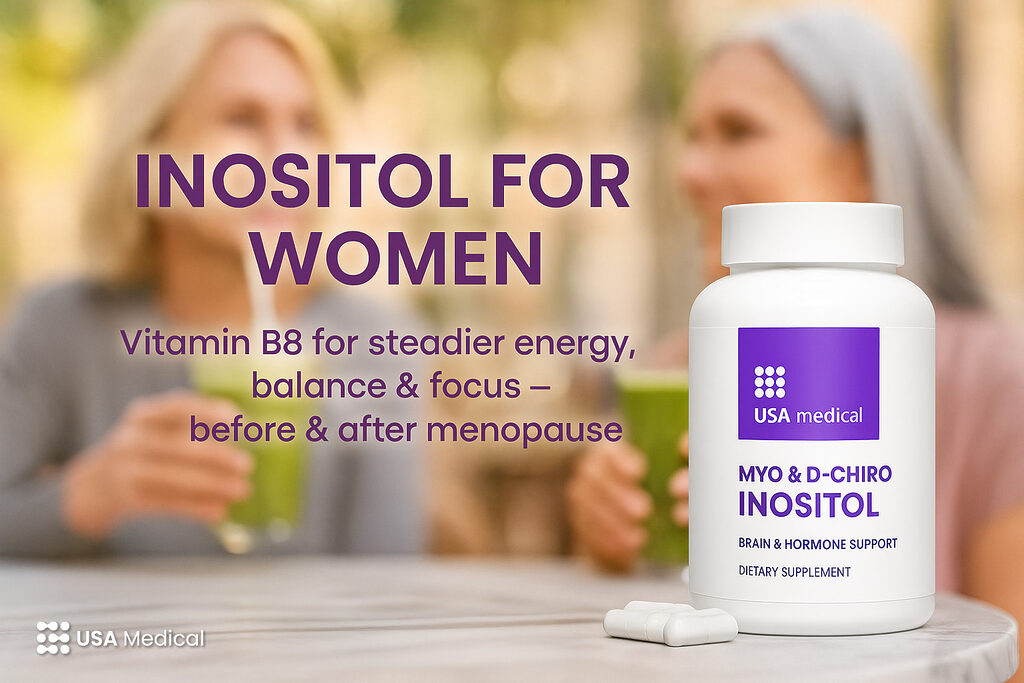
Inositol for Women: How Vitamin B8 Supports Women’s Health Before & After Menopause
If you want steadier energy, more regular rhythms, and a
By Jake Crossman (CNC-NASM), Nutrition Specialist; Holistic Health Coach; Managing Partner, USA Medical
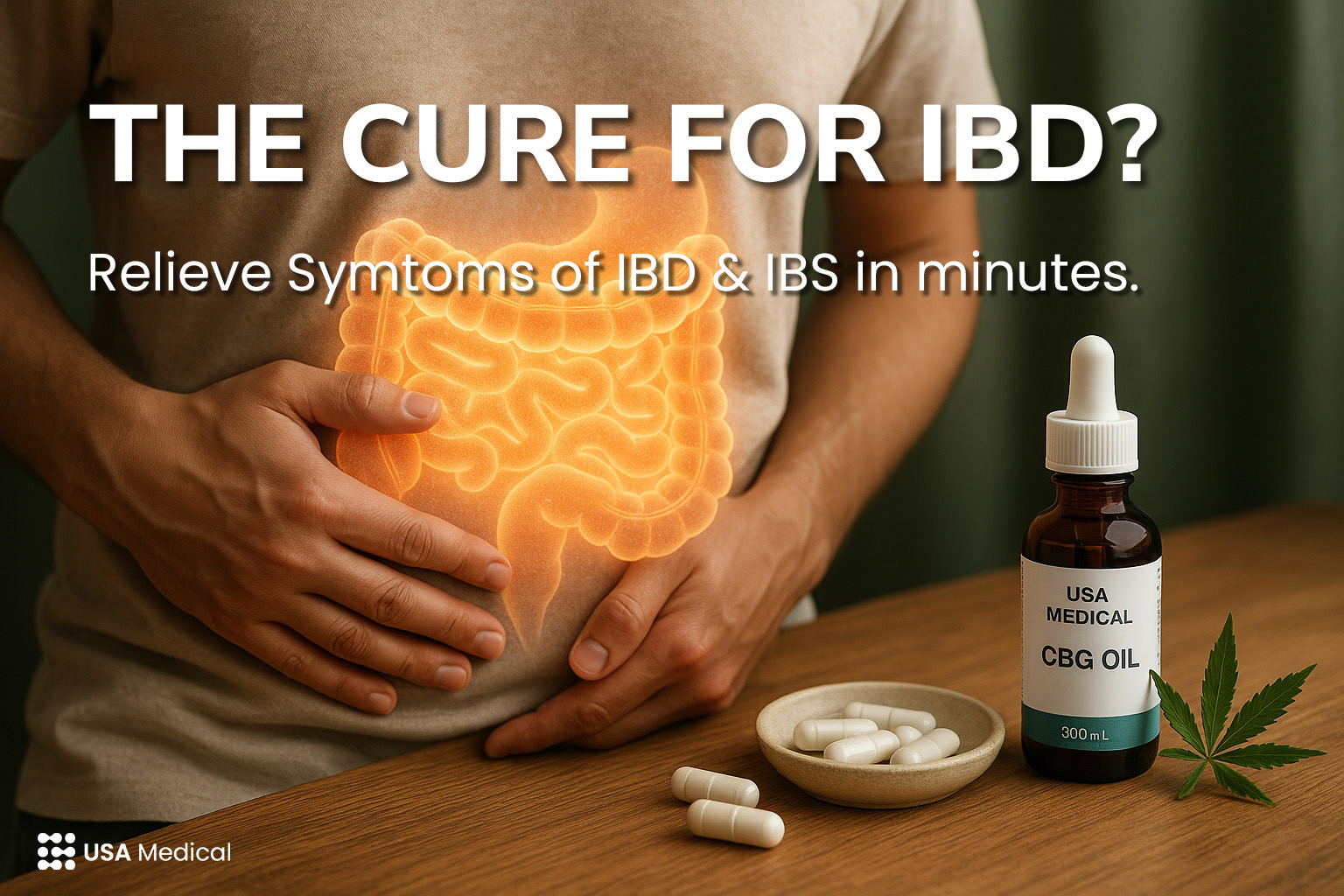
IBD is an umbrella term for chronic gut inflammation, mainly ulcerative colitis and Crohn’s disease. IBS is different. IBS is a functional gut disorder with pain, bloating, and bowel changes without the same tissue inflammation seen in IBD.
Many people live with overlapping symptoms, so the toolkit below intentionally speaks to IBD, IBS, and Crohn’s disease. Symptom relief can feel dramatic even when the underlying diagnosis remains.
Cannabinoids have been studied for gut pain, motility, and inflammation, but the level of proof is not the same across conditions. (CGH Journal, annalsgastro.gr)
CBG oil delivers cannabigerol, a non-intoxicating cannabinoid. In a well-cited mouse model of colitis, CBG reduced inflammatory markers in the colon and improved tissue findings, which is a strong mechanistic signal for IBD.
Human data in IBD is still limited, but broader cannabinoid research shows improvements in abdominal pain, appetite, sleep, and quality of life. That is why CBG oil is increasingly used as an adjunct for IBD and Crohn’s disease, and for IBS symptom flares.
What this does not mean is that CBG oil cures IBD. In randomized work with cannabis in Crohn’s disease, patients often reported symptom relief and better quality of life, while objective inflammation was not consistently reduced. Translation for you.
CBG oil can help you feel better in IBD and Crohn’s disease, and may be very helpful for IBS discomfort, but it should sit next to, not replace, your prescribed care.
Mechanistically, CBG interacts with CB receptors and TRP channels involved in gut pain and inflammation, which helps explain why CBG oil is being explored for gut health. Early pharmacology work also points to activity at 5-HT1A and PPAR pathways that touch nausea, visceral pain, and immune tone. That is relevant across IBD, IBS, and Crohn’s disease. (ScienceDirect, CGH Journal)
Magnesium is essential for nerve and muscle function, stress resilience, and motility. Many adults fall short of the recommended 310 to 420 mg of magnesium per day from diet.
Supplementation can help, especially when intake is low or losses are high. Magnesium glycinate is a chelated form that many people tolerate well. It is a smart choice when loose stools are a concern, which makes it attractive for IBS and for IBD patients between flares. (Office of Dietary Supplements)
Different magnesium salts absorb differently. Across studies, organic salts like citrate often show higher bioavailability than oxide. Amino acid chelates, including magnesium glycinate, are designed for good absorption and gentler GI effects, although head-to-head human data is still limited. In constipation-predominant IBS, magnesium salts can aid stool frequency.
In IBD or Crohn’s disease with diarrhea, magnesium glycinate is usually preferred over citrate or oxide because it is less likely to loosen stools. (BioMed Central, ScienceDirect, MDPI)
Put simply, many people feel that CBG oil reduces the pain and reactivity side of IBD and IBS, while magnesium glycinate supports steadier motility and calmer nerves.
Crohn’s disease patients often describe the combo as the first thing that made daily life feel normal again, even though it is not a medical cure.
Start low and steady. There is no FDA-standardized dose for CBG oil. Begin with a low dose, evaluate for two to three days, then titrate slowly.
Keep your gastroenterologist in the loop, especially if you have IBD or Crohn’s disease. (U.S. Food and Drug Administration, Harvard Health)
Example routine that many tolerate well
Medication spacing and cautions
When not to rely on the stack
If you want relief that feels close to a cure, the combination of CBG oil and magnesium glycinate is one of the smartest, lowest-friction stacks to test for IBD, IBS, and Crohn’s disease.
The biology checks out, patient-reported outcomes are encouraging, and the safety profile is reasonable when used thoughtfully. The right takeaway is disciplined optimism.
Use CBG oil and magnesium glycinate to control pain, calm the system, improve sleep, and reduce day-to-day suffering, while your medical team treats IBD or Crohn’s disease itself.
No. Trials show symptom and quality-of-life gains with cannabinoids, while objective inflammation often does not change. That is still a huge win for daily function, especially when paired with medical therapy for IBD and Crohn’s disease. (files.iowamedicalmarijuana.org, Oxford Academic)
Different tools for different bowels. If diarrhea is your baseline, magnesium glycinate is usually gentler. If constipation is the problem, citrate often works better. Many people with IBS try glycinate first, then adjust. (BioMed Central, ScienceDirect)
Yes, as an adjunct with your prescriber informed. Do not discontinue IBD medications. Monitor for changes in symptoms and labs on your standard schedule. (CGH Journal)
Yes. Separate from certain antibiotics, thyroid meds, and bisphosphonates. If you take diuretics or diabetes drugs, ask your clinician about timing. (Verywell Health)
Disclaimer: This article is for education only and is not medical advice. CBG oil and magnesium glycinate are not approved to diagnose, treat, or cure IBD, IBS, or Crohn’s disease. Always work with your licensed healthcare provider for diagnosis, treatment, and supplement use.

My name is Jake. I'm a certified health coach, accredited nutritionist, and I want to make health easier for everyone.
We have the 'most advanced healthcare' in history, yet millions are still sick and on more medication than ever. My goal is to make holistic health more achievable for everybody.
I read all comments, so please let me know what you think!
These statements have not been evaluated by the FDA. USA Medical products are not intended to diagnose, treat, cure, or prevent any disease. Please consult with a healthcare professional before use.

If you want steadier energy, more regular rhythms, and a
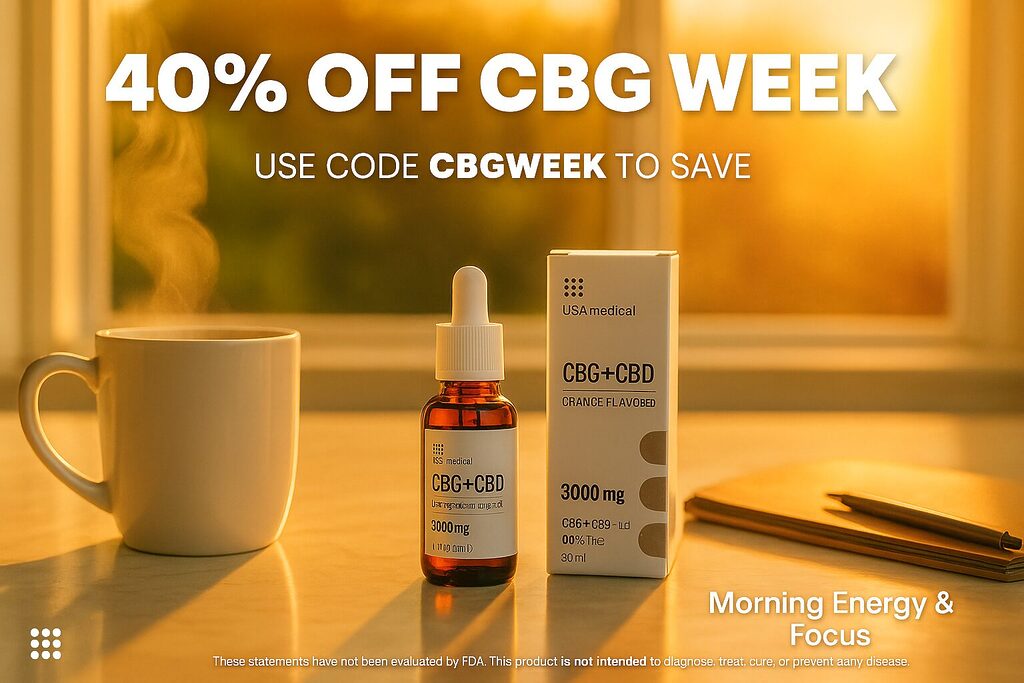
Save 50% on USA Medical CBG this week. Use code
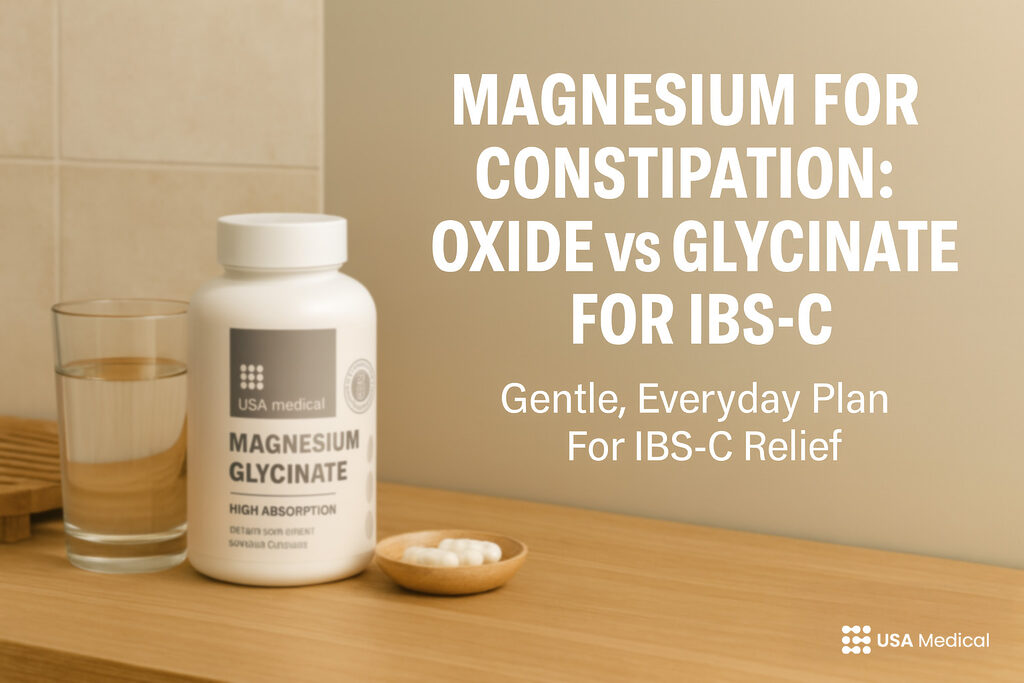
If your goal is comfortable, consistent relief, not a rollercoaster,

If you’re wondering whether magnesium glycinate for sleep is worth
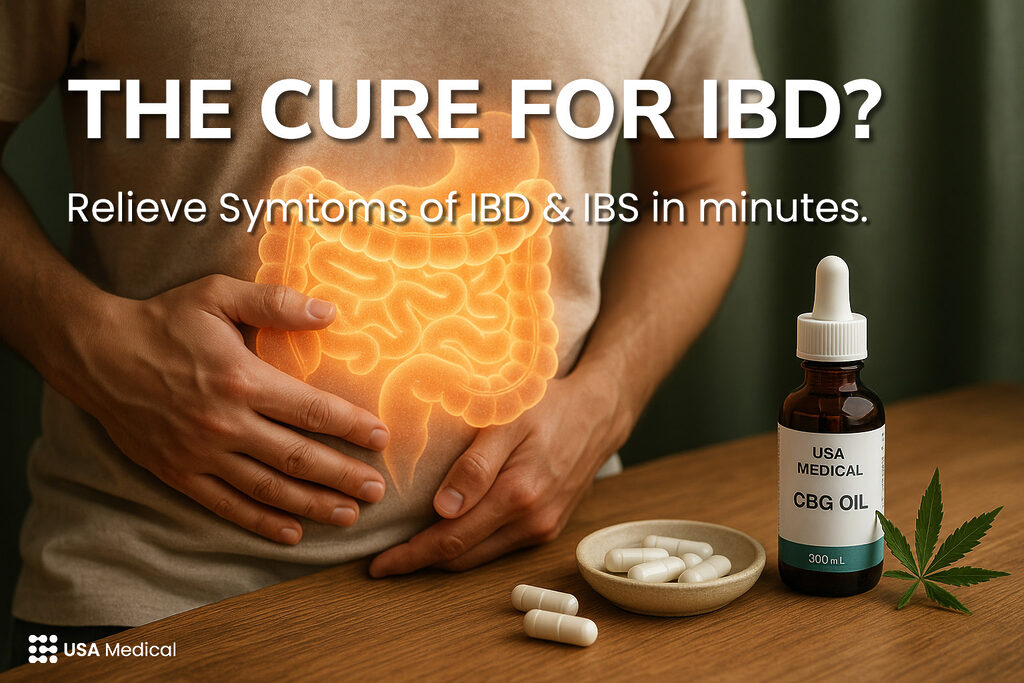
What we mean by IBD, IBS, and Crohn’s IBD is
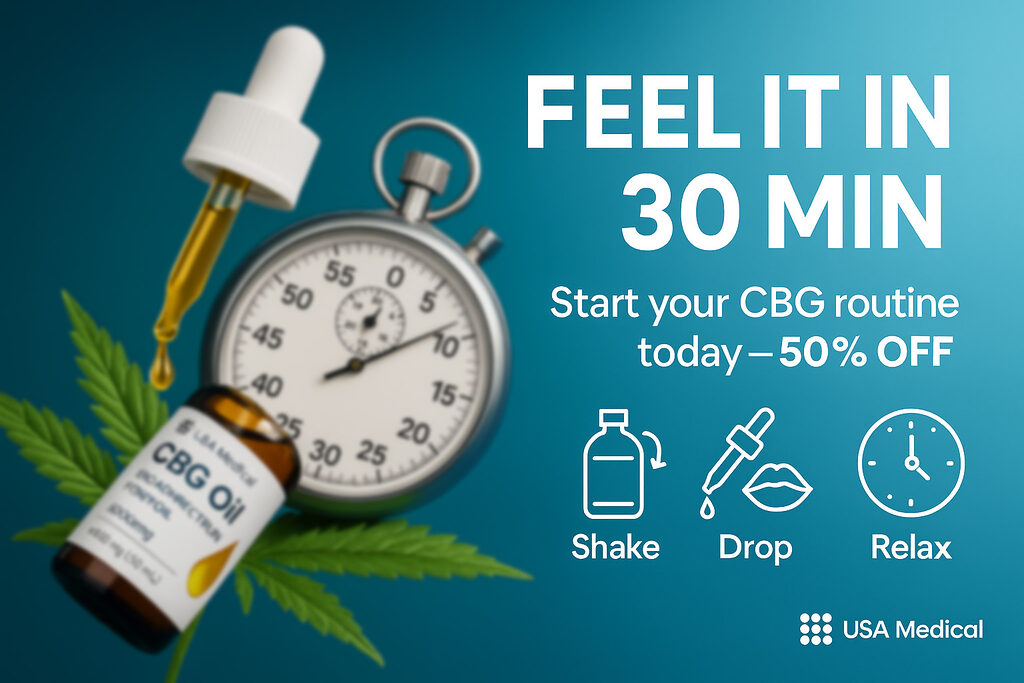
USA Medical CBG Oil works quickly and keeps working for

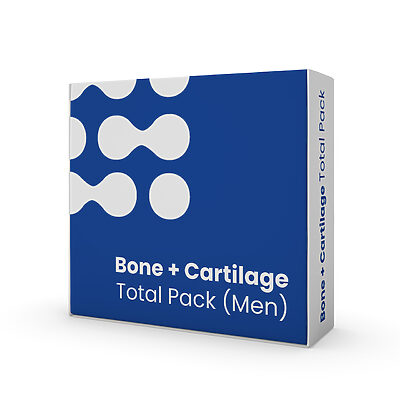
In stock | Free shipping
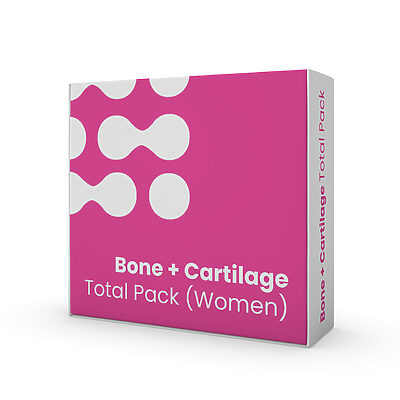
In stock | Free shipping
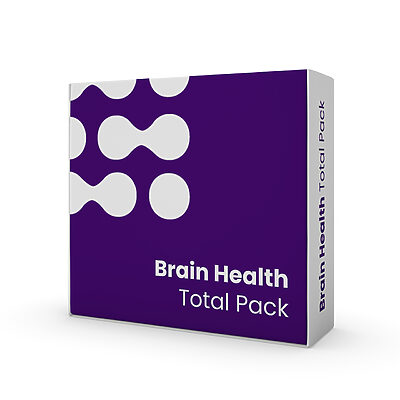
In stock | Free shipping

In stock | Free shipping
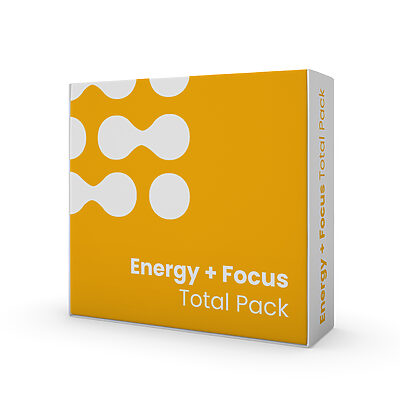
In stock | Free shipping
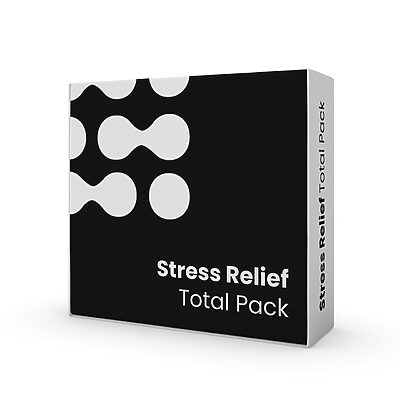
In stock | Free shipping
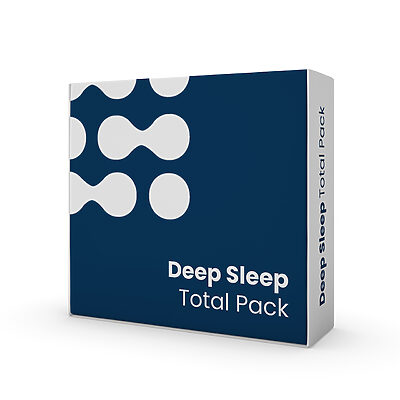
In stock | Free shipping
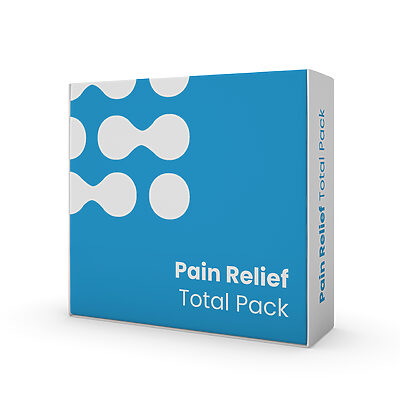
In stock | Free shipping